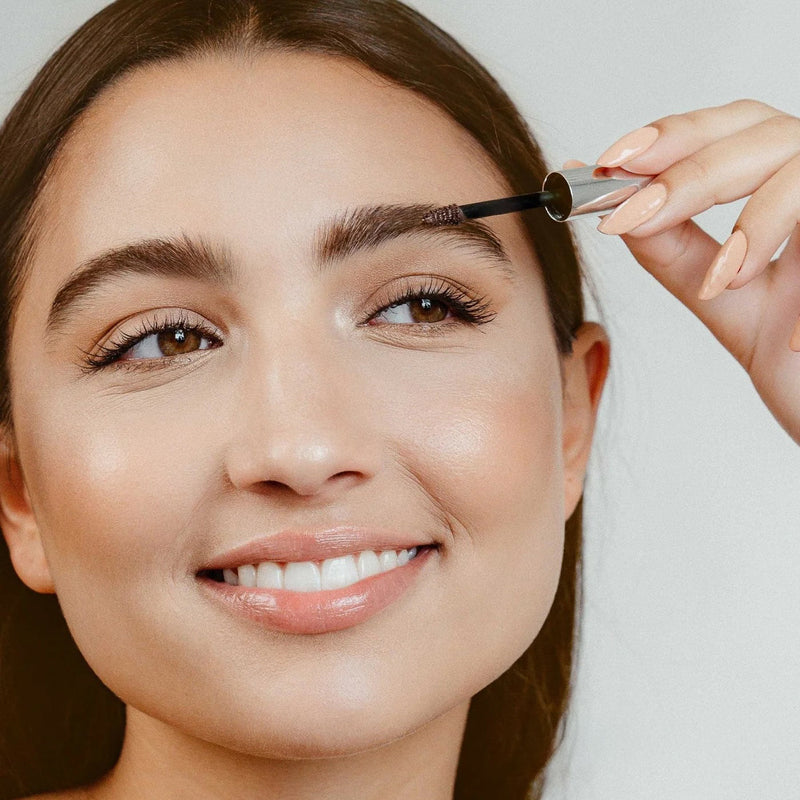Your skin is talking to you! The body's largest organ is a great barometer of what is going on inside the body. Acne, dry and irritated skin, rosacea, eczema ... if your skin is inflamed or congested, chances are there is an imbalance taking place in your gut. We've dug up some expert-approved tips to support your gut health to give you supple glowy skin.
How an Unbalanced Gut Affects Your Skin Health
This intricate relationship means that nurturing your gut is just as important as caring for your skin’s surface when aiming for a radiant complexion.
Understanding the Gut-Skin Axis: Why Your Digestion Impacts Your Complexion
Ever notice the morning after a few alcoholic libations that your skin looks dull and grey, or after loading up on salted popcorn, your skin appears bloated and puffy? The foods and beverages we consume are directly connected to the health and appearance of our skin. And the health of our gut microbiome is the star player in that food-skin connection. It's called the gut-skin axis - the constant dialogue between the gut and your skin. When your gut health is out of whack, it can impact the appearance and health of your skin in these ways:
Inflammation: The Gut Imbalance Behind Acne and Rosacea: An unhealthy gut can lead to inflammation throughout the body, including the skin. Inflammation can trigger the production of free radicals, damaging skin cells and contributing to premature skin aging and a host of unhappy skin conditions like acne and rosacea.
Poor Nutrient Absorption: Starving Your Skin from Within: The gut is responsible for absorbing and distributing nutrients throughout the body. When it's not functioning correctly, the skin won't receive the proper nutrients it needs to stay healthy and radiant.
Microbiome Disruption: When Gut Bacteria Cause Skin Chaos: The gut microbiome is a collection of microorganisms that play a crucial role in maintaining gut health and preventing leaky gut syndrome. An imbalanced gut microbiome triggers an immune response that ultimately results in systemic inflammation, including inflammation in your skin.
Hormonal Imbalances: How Gut Health Impacts Acne and Aging: An unhealthy gut can be an endocrine disruptor, upsetting the hormonal balance and leading to skin problems, such as acne and hormonal aging. New research suggests the microbiome plays a significant role in estrogen regulation - a hormone we'd very much like to keep balanced if we have overzealous sebaceous glands (i.e. acne)!
Dehydration and Dullness: Gut Health and Your Skin’s Hydration: The gut is responsible for regulating water balance in the body, so an unhealthy gut can lead to chronic dehydration. Like most things that suffer when our system is dehydrated, thirsty skin is pretty intolerable. (For a quick fix for to dry, dull skin - trust in the Josh Rosebrook Vital Balm).
How to Restore Gut Health for Glowing, Clear Skin
Now that we know what an imbalanced gut does to the skin let's get cracking on repairing skin from the inside out.
 Hydrate for Healthy Skin and a Happy Gut: Drinking plenty of water helps keep your skin and gut hydrated. Aim for at least eight glasses of water per day. Water works wonders on your skin and overall health, from helping your skin maintain elasticity to reducing wrinkles and fine lines. Drink up!
Hydrate for Healthy Skin and a Happy Gut: Drinking plenty of water helps keep your skin and gut hydrated. Aim for at least eight glasses of water per day. Water works wonders on your skin and overall health, from helping your skin maintain elasticity to reducing wrinkles and fine lines. Drink up!
Manage Stress to Calm Skin and Support Digestion: Chronic stress has been linked to skin and gut health problems. Make time for self-care and manage stress levels (as best you can). Exercise, meditation, and therapy are our go-to's.
Cut Back on Caffeine and Alcohol for a Balanced Microbiome: Alcohol and caffeine can seriously disrupt the balance of the gut microbiome and trigger all sorts of skin issues. (We know this is hard to hear). These ingredients also hit a double-whammy by triggering stress from their withdrawal symptoms. Try to limit or eliminate these substances - it's one of the most important things you can do to restore gut health.
Prioritize Sleep for Skin Repair and Gut Recovery: Adequate sleep is essential for your gut and skin health. All kinds of good things regenerate while we sleep. Fewer fine lines, brighter complexion, less puffy eyes, fuller hair - beauty sleep is real! Aim for 7-9 hours of sleep per night to support optimal health.
Add Probiotics to Support Gut Flora and Skin Health: Taking a daily probiotic supplement helps balance the friendly bacteria in your digestive system and maintain a healthy gut microbiome. They also help your body's community of microorganisms return to a healthy state after being disturbed. Think of them as your internal retinol.
Eat Your Way to Better Skin with a Microbiome-Friendly Diet: Eat a rainbow of colourful fruits and vegetables and foods rich in fiber, probiotics, and prebiotics to support a healthy gut microbiome and give your skin some major glow. Avoid processed foods and added sugars. These foods can disrupt gut health and contribute to inflammation.
Our Takeaway: The Gut-Skin Connection: Heal Your Microbiome, Clear Your Skin
It's becoming increasingly evident that the connection between gut and skin health is complex and interrelated. By supporting gut health - eating a healthy diet, staying hydrated, managing stress, limiting alcohol and caffeine, and getting enough sleep - you'll glow from the inside out. If you have specific concerns about your skin, please reach out to your knowledgeable Green Kiss Educator for support.
All copy found on The Green Kiss website is written for informational purposes only and is not a substitute for professional medical advice.





